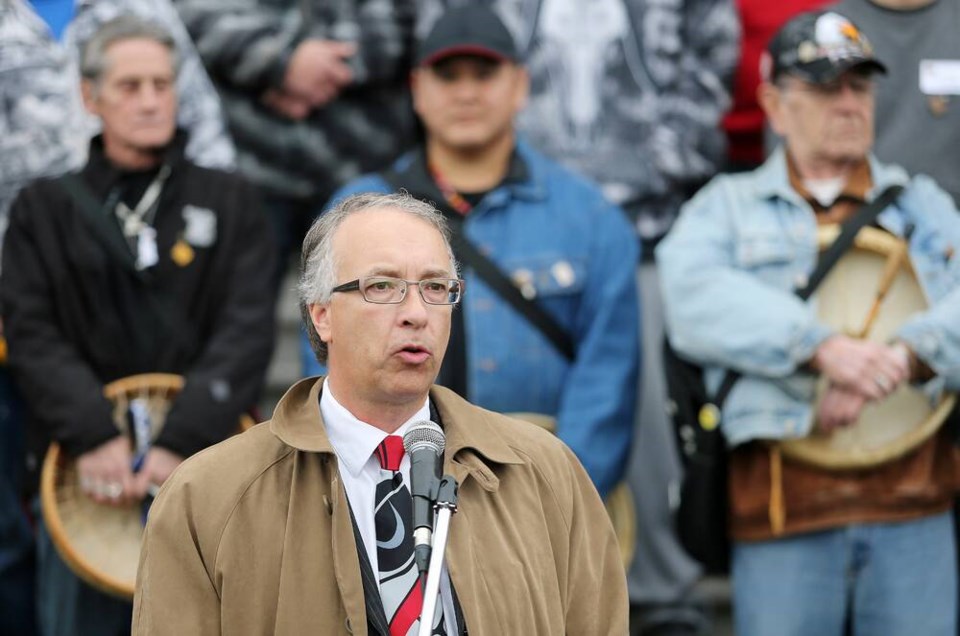Is the BC Conservative Party surging in popularity? That’s the question rippling through B.C. politics after a new poll by Mainstreet Research saw the Conservatives vault over BC United as the second-most popular political party in the province, at 21 per cent approval.
“It’s a pretty big shift in B.C. politics,” BC Conservative leader John Rustad said in an interview.
“Any poll is a snapshot in time. Polls can be off, so you can’t get too excited. But it’s obviously very encouraging for us as a party to see that traction we’re getting. And it follows a couple of internal polls that showed very similar numbers.”
The Mainstreet survey pegged the B.C. NDP at 30 per cent approval, BC United at 18 per cent, BC Conservatives at 21 per cent and BC Greens at eight per cent. Roughly 20 per cent of voters were undecided and three per cent supported other parties.
The numbers represent an almost 18 point drop for the NDP from the 2020 election results, a 16 point drop for BC United and a 19 point increase for the BC Conservatives.
Mainstreet polled 601 adults from Aug. 29 to 31, using robo-calls to landlines and cell phones. The margin of error is plus or minus four points.
First, the usual disclaimer about polls — they are a finicky, unscientific, often unreliable way to gauge voter intentions. But, they remain one of the only tools available to parties to try to glimpse public sentiment, and are still widely used. To top it off, Mainstreet has a dubious record of accuracy in B.C., and is not considered one of the top polling companies in this province by any party.
All that being said, the numbers in a larger sense offer some clues as to what may be happening at the kitchen tables of British Columbians.
Brand confusion between federal and provincial parties has always been an issue, with many voters mistaking the two when asked their opinion. With the federal Conservatives rising in popularity under leader Pierre Poilievre, they may be pulling along the B.C. Conservatives in their wake, even if the two parties are not linked at all.
“I suspect that’s part of it,” said Rustad.
But it may not be the whole explanation.
There remains widespread voter confusion over the B.C. Liberal name change to B.C. United.
To captialize, Rustad has been on an aggressive public tour since becoming leader March 31, criss-crossing the province holding rallies, setting up constituency associations, fundraising, rallying members and recruiting candidates. His travel schedule rivals, if not exceeds, that of BC United leader Kevin Falcon and Premier David Eby.
“I’m trying to spend as much time as I can on the road,” he said.
“Monday I’m in Kamloops. I start a two-week road trip, I’ll be in Kamloops, I’ll be in the Shuswap, I’ll be in the Okanagan, Merritt, Vancouver, Victoria, Cowichan Valley and I may even try to get up to the Courtenay-Comox area and then back to Vancouver for the UBCM, and then while I’m there I’ll be going to Richmond, Surrey and the Tri-Cities.”
All that touring may be helping galvanize B.C. Conservative supporters.
“There's an underlying current in society, people just aren't happy,” said Rustad. “Whether it’s people just struggling to put food on the table, whether it's some of the ideological things that are going on, it just seems to be people are looking for something different. And that seems to be connecting with the message that we're sending.”
Actual results, so far, have been mixed.
The Conservatives did well in June’s Langford-Juan de Fuca byelection, finishing second with almost 20 per cent of the vote under local realtor Mike Harris. But the party was thumped in Vancouver-Mount Pleasant, finishing a distant fourth with candidate Karin Litzcke, who ran a trans-phobic campaign.
Still, it appears the BC Conservative presence in provincial politics is real. The biggest beneficiary of the rise, outside of Rustad himself, will be premier Eby and the BC NDP, who could easily sail to another majority victory on a centre-right vote split between the BC Conservatives and BC United.
“Campaigns matter,” said Rustad. “But if that poll was the election result, we’d be the official opposition. Our goal is to take on government and challenge them and win in 2024.”
There’s still plenty of time for polling numbers to change wildly, for everyone, before voters mark their ballots in 2024. Still, this Mainstreet poll has got people talking — if for no other reason than it shows how dramatic a ride the next 13 months could be until the next provincial election.
Rob Shaw has spent more than 15 years covering B.C. politics, now reporting for CHEK News and writing for Glacier Media. He is the co-author of the national bestselling book A Matter of Confidence, host of the weekly podcast Political Capital, and a regular guest on CBC Radio. [email protected]




